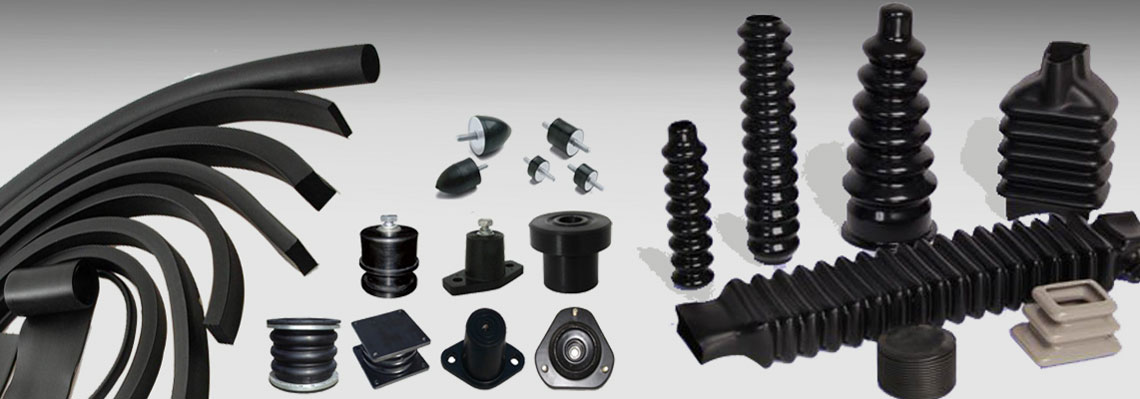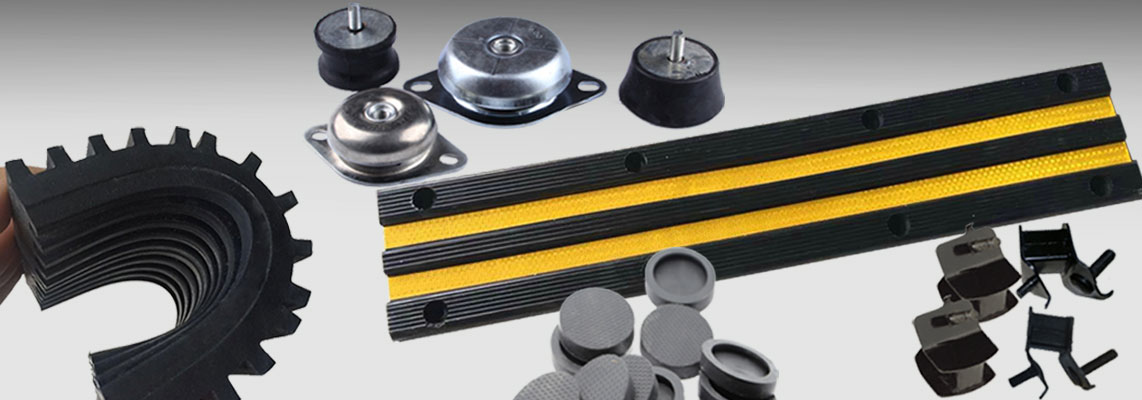Rubber-Steel Wheels play a critical role in industrial and logistics equipment, offering superior load capacity, shock absorption, and durability. As a specialized manufacturer, we are dedicated to providing high-quality rubber-steel wheel solutions for various industrial applications. This article will introduce the benefits, applications, and key factors to consider when selecting rubber-steel wheels to help you find the ideal product for your needs.
1. Features and Advantages of Rubber-Steel Wheels
Rubber-steel wheels are composed of an outer rubber layer and an inner steel core, offering the shock absorption and noise reduction benefits of rubber while maintaining the load-bearing strength of steel. Key features of these wheels include:
- 1. Excellent Shock Absorption: The rubber layer reduces vibrations on uneven surfaces, minimizing wear on machines.
- 2. Low-Noise Operation: Rubber material helps reduce friction noise, making it ideal for quiet environments.
- 3. Wear Resistance and Impact Strength: The steel core structure supports heavy loads and is designed for long-term industrial use.
- 4. Corrosion Resistance: Many rubber-steel wheels undergo anti-corrosion treatment, making them suitable for outdoor and challenging environments.
2. Versatile Applications of Rubber-Steel Wheels
Due to their durability and stability, rubber-steel wheels are used across multiple industries, including:
- Logistics and Transportation: Commonly used in hand trucks, storage racks, and conveyors, these wheels boost logistics efficiency.
- Industrial Manufacturing: Ideal for workshop trolleys and support racks, as they handle heavy loads while reducing floor wear.
- Construction: Suitable for outdoor construction sites, allowing for stable movement on rough terrain.
- Retail and Commercial Spaces: Used on supermarket shelves and carts to enhance durability and reduce replacement frequency.
3. Key Considerations When Choosing High-Quality Rubber-Steel Wheels
Selecting the right rubber-steel wheels can enhance equipment lifespan, save maintenance costs, and boost productivity. Here are some key factors to consider:
1. Load Capacity and Size
Firstly, determine the maximum load capacity and suitable wheel size based on your application. Heavy-duty equipment requires wheels with high load capacity to avoid overloading, which can shorten product lifespan. We recommend choosing wheels with a load capacity exceeding your requirements to ensure safety and durability.
The size of the rubber-steel wheel is also crucial. Larger wheels are more stable on rough terrain, while wider wheels provide added stability for heavy-duty equipment, preventing tipping during transport.
2. Suitable Rubber Hardness
Rubber hardness should match the intended environment:
- Soft Rubber: Ideal for rough surfaces or noise-sensitive areas, like offices or workshops, soft rubber provides excellent shock absorption and noise reduction.
- Hard Rubber: Better suited for smooth surfaces, hard rubber is more wear-resistant and ideal for applications requiring high durability.
3. Steel Core Quality and Corrosion Resistance
The steel core quality directly affects the wheel’s load-bearing capacity and lifespan. High-quality steel ensures stable operation, impact resistance, and structural integrity. Additionally, anti-corrosion treatment (such as galvanizing or surface coating) is essential if the wheels will be used in humid or oil-prone environments. Anti-corrosion steel cores extend the wheel’s lifespan, especially in harsh conditions.
4. Adhesion Quality Between Rubber and Steel Core
The adhesion strength between the rubber layer and steel core is a key indicator of rubber-steel wheel quality. Poor bonding can lead to rubber layer peeling or cracking, affecting performance and durability. When choosing, inspect the wheel for any visible gaps or looseness; quality rubber-steel wheels should have a seamless, smooth finish with strong bonding.
5. Temperature and Chemical Resistance
Different environments have different temperature and chemical resistance requirements. If the wheel will be exposed to high temperatures, low temperatures, or chemicals, choose rubber-steel wheels made from materials designed to withstand such conditions to prevent deformation or damage.
6. Bearing Type Selection
High-quality rubber-steel wheels often feature ball bearings for smoother and more flexible movement. Ball-bearing wheels reduce friction, especially under heavy loads, making movement easier and increasing productivity.
7. Supplier Reputation and Certification Assurance
Choosing a reputable supplier ensures product quality and after-sales support. Certified rubber-steel wheels typically feature ISO, RoHS, or other marks of quality, indicating adherence to strict material, manufacturing, and environmental standards. Our products undergo rigorous quality testing and certification, ensuring reliable performance in diverse work environments.
4. Our Product Advantages
As an experienced rubber-steel wheel manufacturer, we prioritize quality and provide high-performance, cost-effective products. Our advantages include:
- Premium Materials: We use wear-resistant, anti-aging rubber to ensure long-lasting durability.
- Advanced Manufacturing: Our environmentally friendly bonding processes ensure secure rubber-to-steel adhesion without peeling.
- Variety of Specifications: We offer a range of wheel sizes and specifications to suit different load capacities and ground conditions.
- Rigorous Testing: Each batch undergoes load, wear, and impact tests to meet quality standards.





